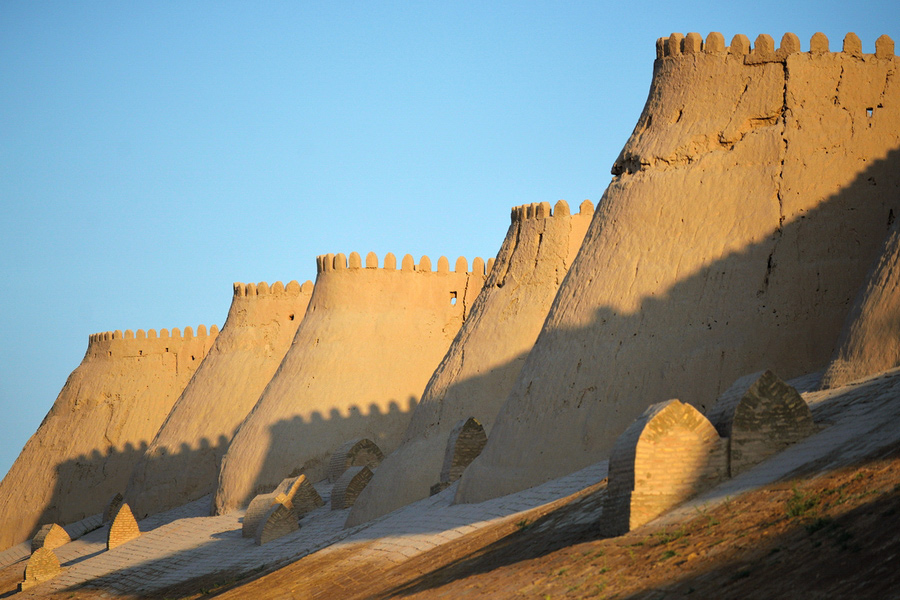Uzbekistan's places to visit include breathtaking madrasas, mosques, minarets, and mausoleums in the historic cities of Samarkand, Bukhara, and Khiva, many of which are recognized as UNESCO World Heritage Sites. Visitors can also explore the stunning natural beauty of the Chimgan and Zaamin mountain ranges, the ancient fortresses of Khorezm, the unique Savitsky Museum in Nukus, and the otherworldly landscapes of the Ustyurt Plateau.
Our guide to the top 15 places to visit in Uzbekistan will help you prioritize and plan your trip to this fascinating country.
Registan Square
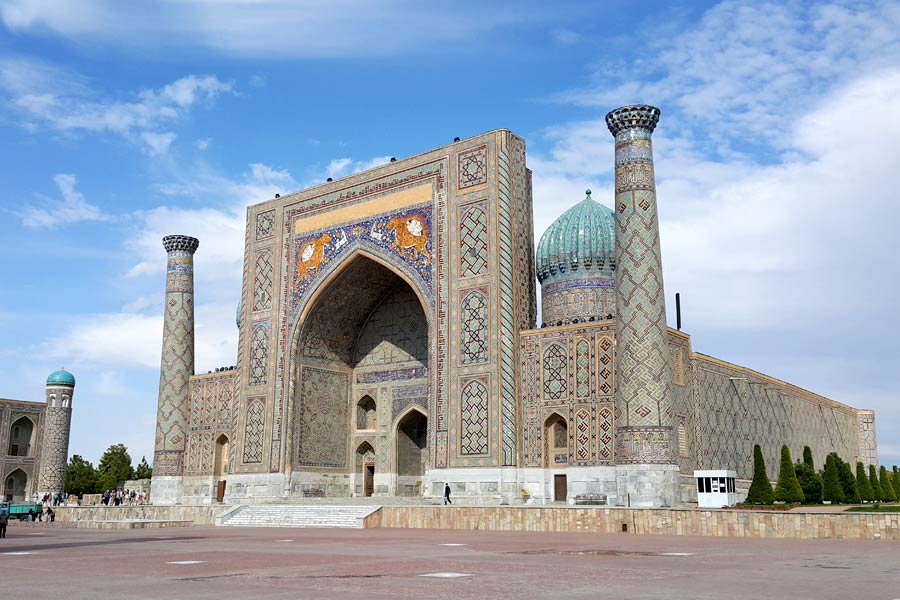
The list of 15 best places to visit in Uzbekistan is headed by the iconic Registan Square, located in the heart of the ancient city of Samarkand, one of the key Silk Road destinations in Uzbekistan. This extraordinary site enchants visitors with its rich history and captivating oriental atmosphere. Registan Square is home to three magnificent madrasahs: the Ulugbek Madrasah (15th century), the Sherdor Madrasah (17th century) and the Tillya-Kari Madrasah (17th century).
As one of the most famous places to visit in Uzbekistan, Registan Square attracts over a million tourists every year. This is not surprising, as the square was once a bustling centre where festivals and public events were held, decrees were announced and madrasahs served as centres of religious and scientific learning. Notable figures such as the astronomer and mathematician Ulugh Beg and the poet Abd al-Rahman Jami studied and taught here, leaving a lasting legacy.
Gur-Emir Mausoleum
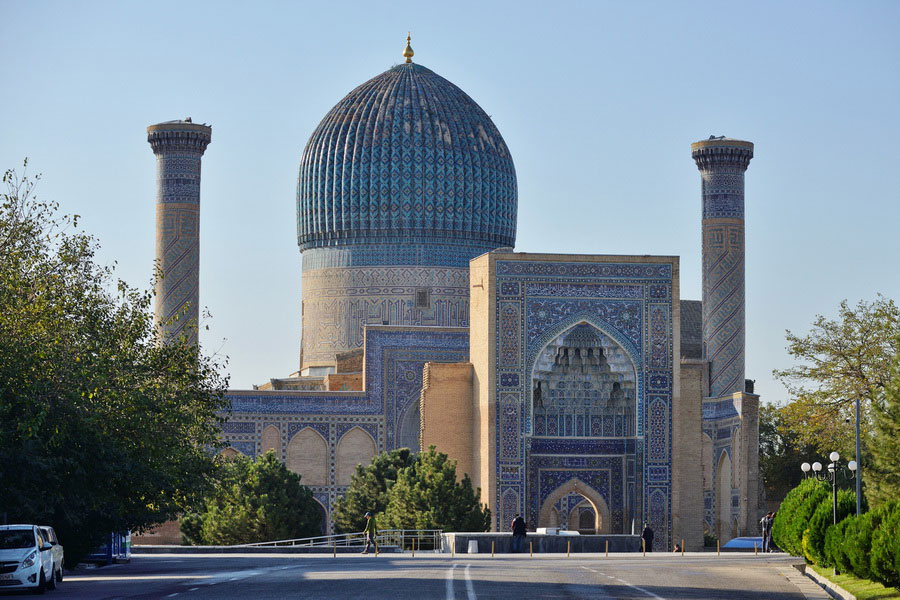
The Gur-Emir Mausoleum in Samarkand is one of the top places to visit in Uzbekistan. This 15th century architectural masterpiece is famous for its grand mausoleum, crowned by a massive dome 12.5 metres high and 15 metres in diameter. The bright blue ribbed dome, visible from almost anywhere in Samarkand, is said to symbolise the celestial sphere. Legend has it that when Amir Timur saw the finished dome, he admired it and proclaimed it to be a worthy substitute for the heavens.
The name Gur-Emir translates as 'Emir's Tomb' and it contains the remains of Amir Timur, along with those of his two sons, Shahrukh and Miranshah, and his two grandsons, Muhammad Sultan and Ulugbek. The site is shrouded in mystery and legend, including the famous story of the Curse of Tamerlane, which is widely known throughout Uzbekistan.
Bibi-Khanum Mosque
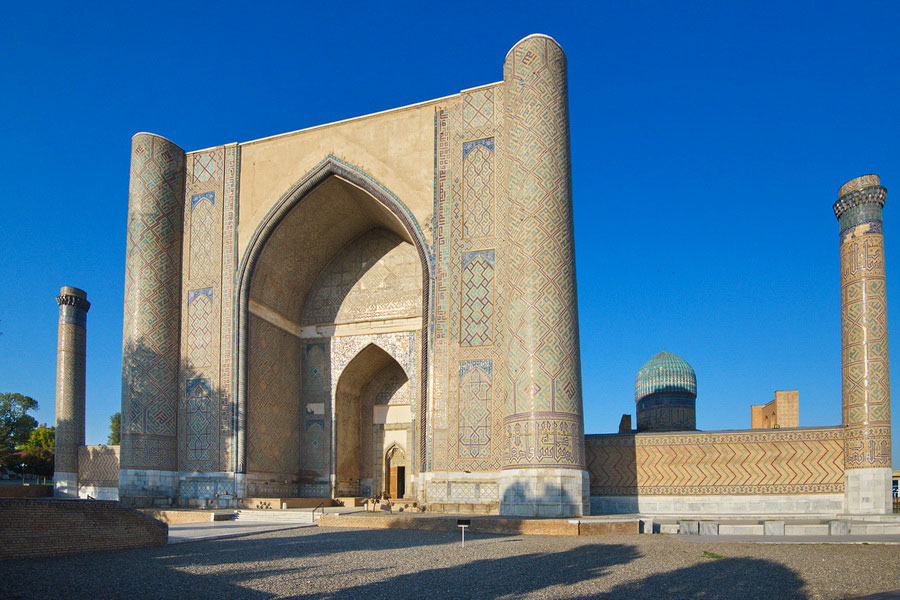
The Bibi-Khanum Mosque in Samarkand is one of the most iconic historical places to visit in Uzbekistan, dating back to the time of Amir Timur (14th-15th centuries). Its construction is shrouded in fascinating legends, including the famous legend of Bibi-Khanum. The mosque was named after Tamerlane's principal and favourite wife, a woman of noble descent from the family of Genghis Khan.
Built in honour of her name, this monumental ensemble continues to amaze visitors with its scale and ornate decoration. Designed to be the most magnificent mosque in the world at the time, it could accommodate up to 10,000 worshippers, a feat almost unimaginable in the 15th century. Although much of the mosque has been destroyed over the centuries, it was carefully restored between 1968 and 2003, preserving its grandeur for future generations to admire.
Ark Fortress (Ark Citadel)
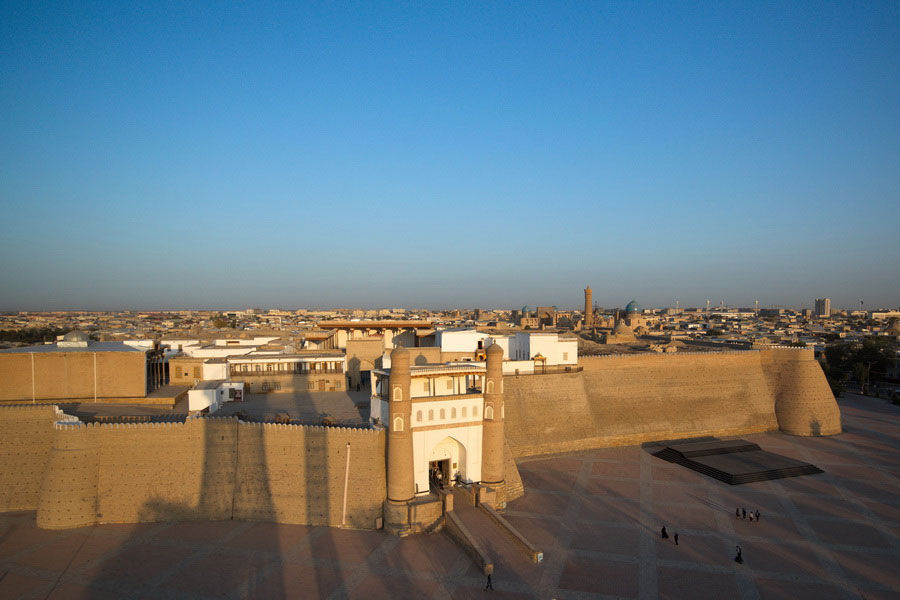
The ancient Ark Fortress is the oldest and one of the most fascinating architectural structures in Bukhara, making it a must-see attraction of Uzbekistan. This massive citadel spans nearly 4 hectares and was constructed over 1,500 years ago on an artificial hill approximately 20 meters high. Historical and literary sources, including Ferdowsi’s epic Shahnameh, link the foundation of the fortress to the legendary hero Siyavush, who is said to have built the Kangdez Fortress, later known as Ark.
Today, the Ark Fortress is among the most vibrant and historically significant places to visit in Uzbekistan. It preserves and showcases the history of the development and growth of Ancient and Medieval Bukhara, offering visitors a glimpse into the country's rich cultural heritage.
Kalyan Minaret
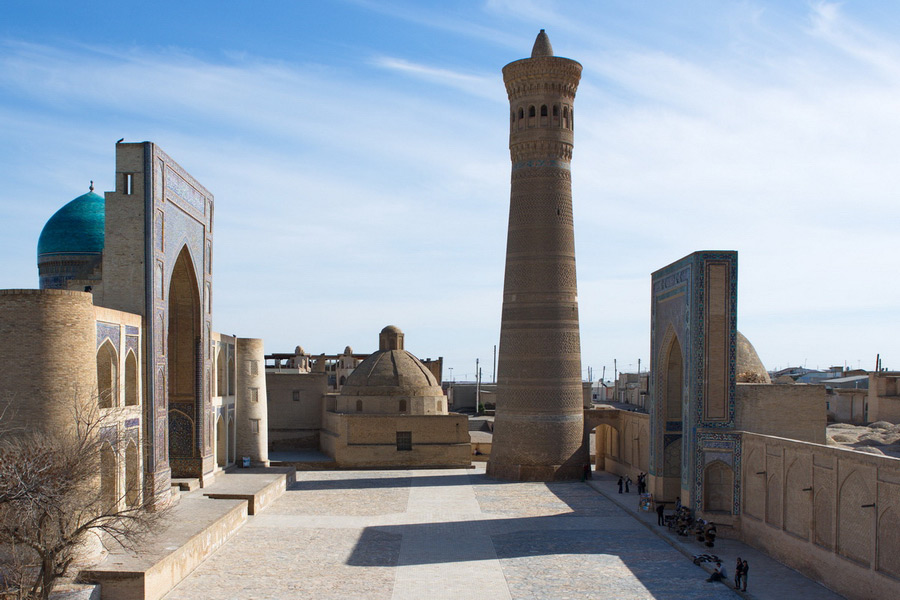
The Kalyan Minaret is a true symbol of Bukhara and one of its most recognisable landmarks. This impressive structure is part of the Poi-Kalyan architectural complex (12th-16th centuries) and stands as its most iconic feature.
The name 'Kalyan' translates as 'big' and the minaret lives up to its name, rising 47 metres - higher than a 15-storey building - above the historic cityscape. Built in 1127 during the reign of the Karakhanid ruler Arslan Khan Muhammad, this remarkable architectural attraction of Uzbekistan continues to impress visitors with its grandeur and historical significance.
Lyabi-Hauz
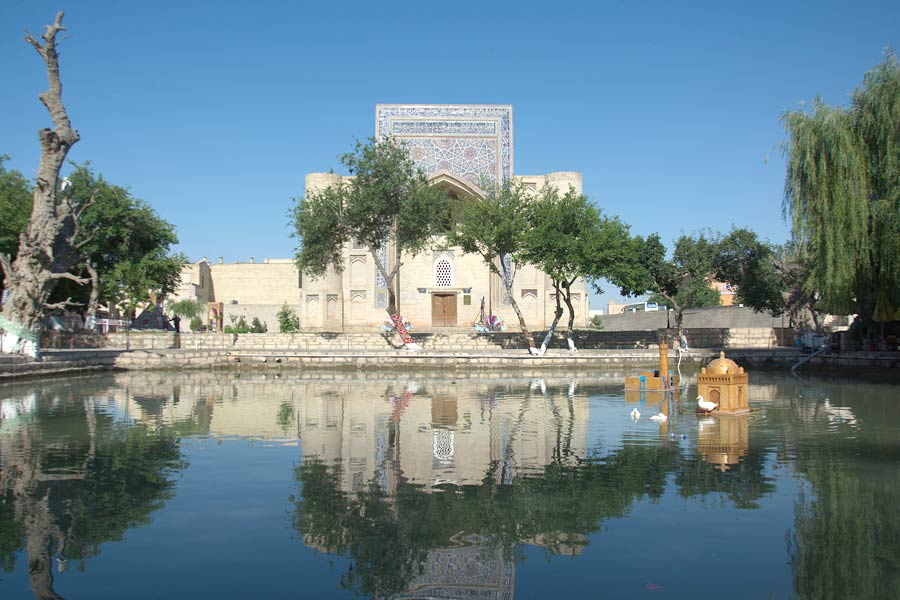
Lyabi-Hauz in Bukhara is a 16th-17th century architectural ensemble built around a tranquil pond. This place, which offers shade and coolness even in the scorching summer, is affectionately known as the "Heart of Bukhara". Since ancient times, the Lyabi-Hauz pond has been a meeting place for city events, celebrations, tea parties and meetings.
The Lyabi-Hauz ensemble includes three key buildings: the Kukeldash Madrasah, the Khanaka and the Nadir Divan Begi Madrasah. In the late 20th century, the ensemble gained an additional highlight and one of Bukhara's most beloved symbols - a monument to Nasreddin Efendi, the famous folklore character and joker, was erected here in 1979. According to tradition, rubbing his right shoe brings good luck, adding a touch of charm and superstition to this historic location.
Itchan Kala
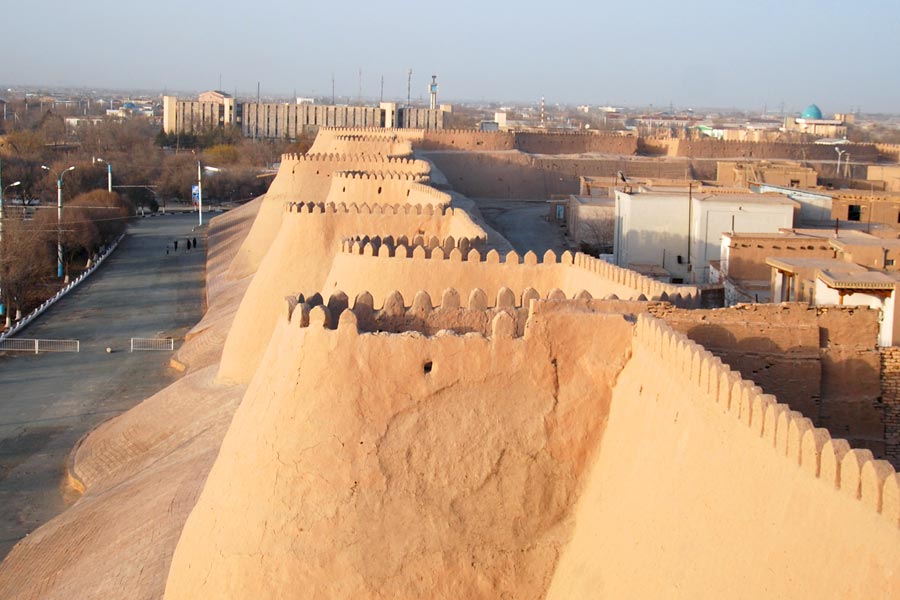
Itchan Kala in Khiva is one of Uzbekistan's most famous historical sites and a fascinating example of a fully preserved ancient city. An open-air historical and archaeological museum, this unique Uzbek attraction is surrounded by towering fortress walls, immersing visitors in the authentic atmosphere of a medieval eastern city.
Spread over 26 hectares, Itchan Kala boasts some 60 preserved historical monuments, including the iconic Islam-Khoja and Kalta Minor minarets and the remarkable Juma Mosque. For anyone exploring the country, Itchan Kala is one of the most extraordinary places to visit in Uzbekistan.
Ak-Saray Palace
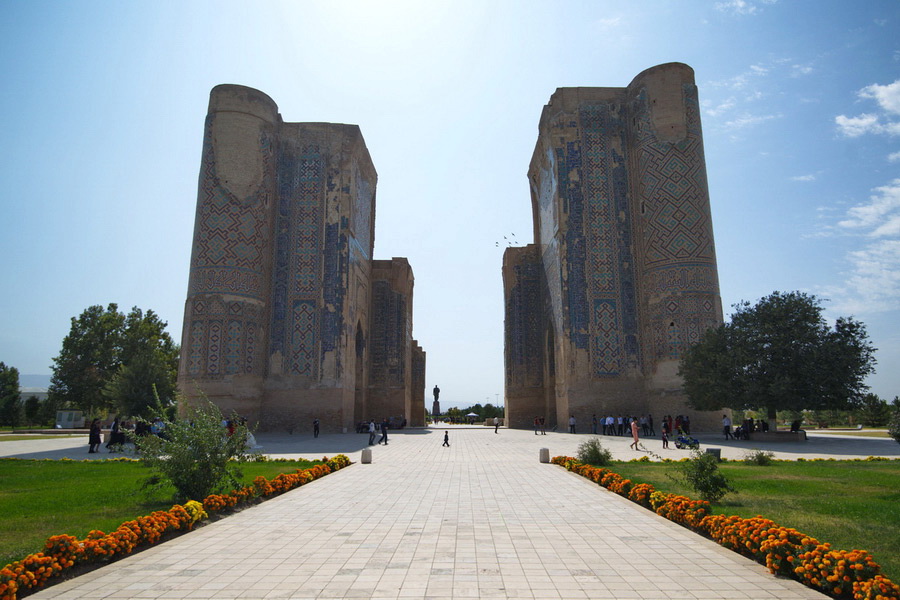
The Ak-Saray Palace in Shakhrisabz represents the ruins of Amir Timur's grand residence dating back to the 14th and 15th centuries. Once the most majestic structure in his empire, historical records indicate that the portal and towers of the Ak-Saray Palace reached an astonishing height of 70-80 metres, comparable to a modern 25-storey building.
Although only two massive pylon structures remain today, they continue to impress visitors with their scale and grandeur, and stand as a testament to the architectural brilliance and power of Amir Timur's era.
Savitsky Museum
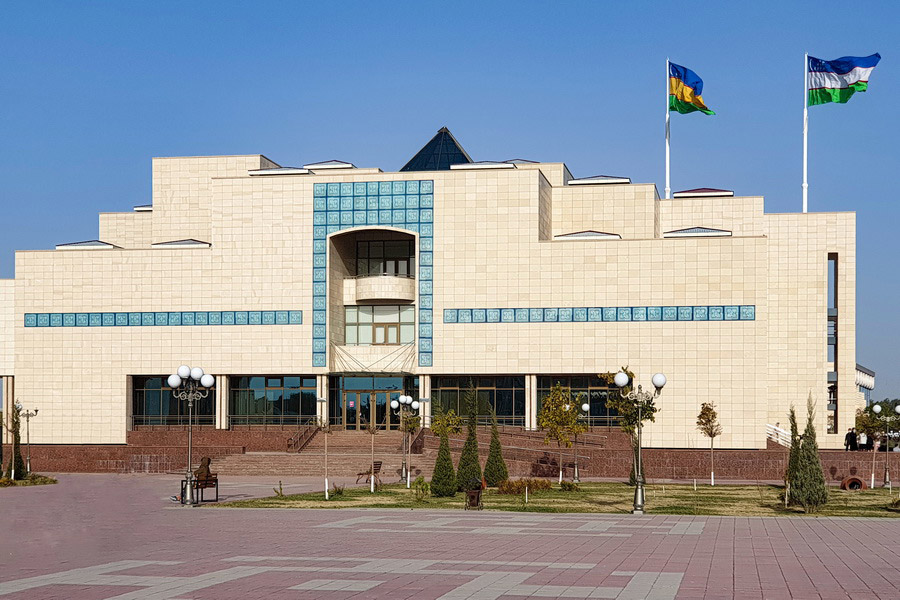
The I.V. Savitsky Museum in Nukus is one of the most prominent cultural landmarks in Uzbekistan. Often referred to as the 'Louvre in the desert', this world-renowned museum was founded in 1966 through the efforts of Russian artist and art historian Igor Savitsky.
The museum's collection is estimated to contain 80-90,000 objects and includes an impressive range of folk and applied arts from Karakalpakstan, ancient Khorezm artefacts and fine arts. Particularly valuable are the paintings of the Russian and Uzbek avant-garde, many of which Savitsky personally transported to Nukus from various cities, sometimes travelling thousands of kilometres to preserve these masterpieces.
Khast Imam Complex and Old City of Tashkent
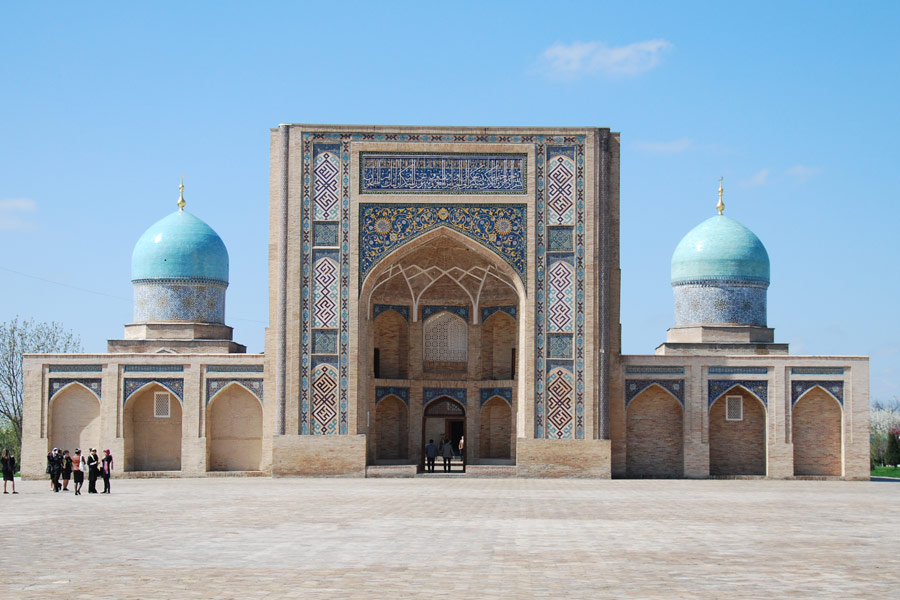
Khast Imam, also known as Hazrati Imam, is one of the main religious complexes in Tashkent and a major attraction in Uzbekistan. Located in the "Old City" in the north-western part of Tashkent, this area preserves the traditional Uzbek mahalla atmosphere with its mud-brick houses, narrow streets and vibrant local traditions. A stroll through these neighbourhoods offers a unique insight into Uzbek culture and demonstrates the friendliness and hospitality of the locals. Visitors can also explore the nearby Chorsu market for authentic Uzbek souvenirs and delicacies.
The Hazrati Imam complex, whose name translates as 'Holy Imam', is named after Kaffal Ash-Shashi, a renowned scholar and theologian (904-975) who is buried on the site. What makes this Uzbek attraction so special is that it houses a priceless relic - the authentic Ottoman Koran, the oldest surviving manuscript of the holy book. Originally brought to Samarkand by Amir Timur, the Koran was later transported to Tashkent in the 19th century, where it remains today.
Tashkent’s TV Tower
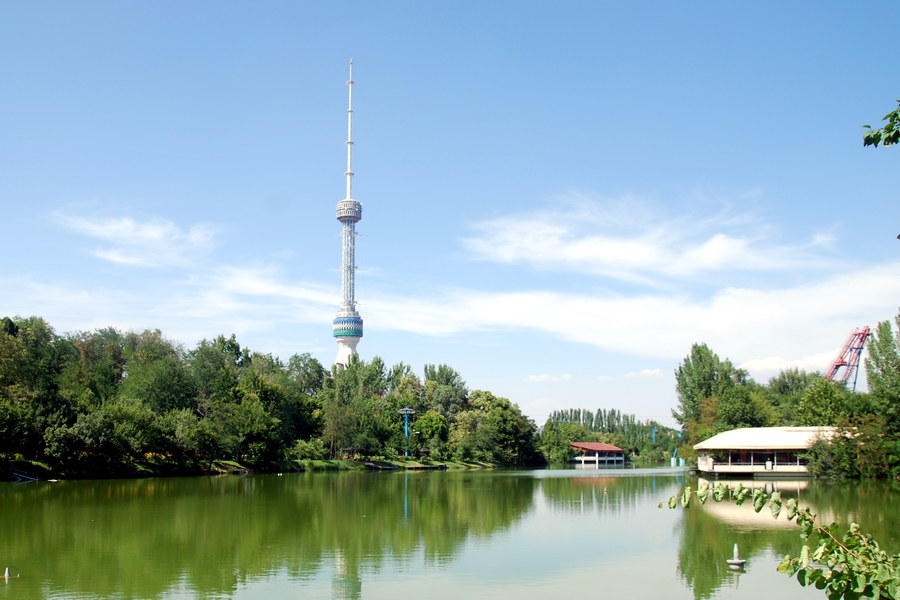
The Tashkent Television Tower is one of the best tourist places to visit in Uzbekistan and a key symbol of the capital. Opened in 1985, this impressive structure has been a landmark for almost 40 years. With a total height of 375 metres, it is the tallest structure with an observation deck in Central Asia.
One of the must-see attractions in Uzbekistan, a tour of the television tower typically includes a trip to the observation deck at 100 metres, followed by a visit to the Koinot restaurant at 110 metres. This restaurant is famous not only for its haute cuisine, but also for its unique revolving dining rooms. The design allows visitors to enjoy panoramic views of Tashkent from different angles while sipping coffee and taking in the city from a bird's eye view.
Tashkent Metro
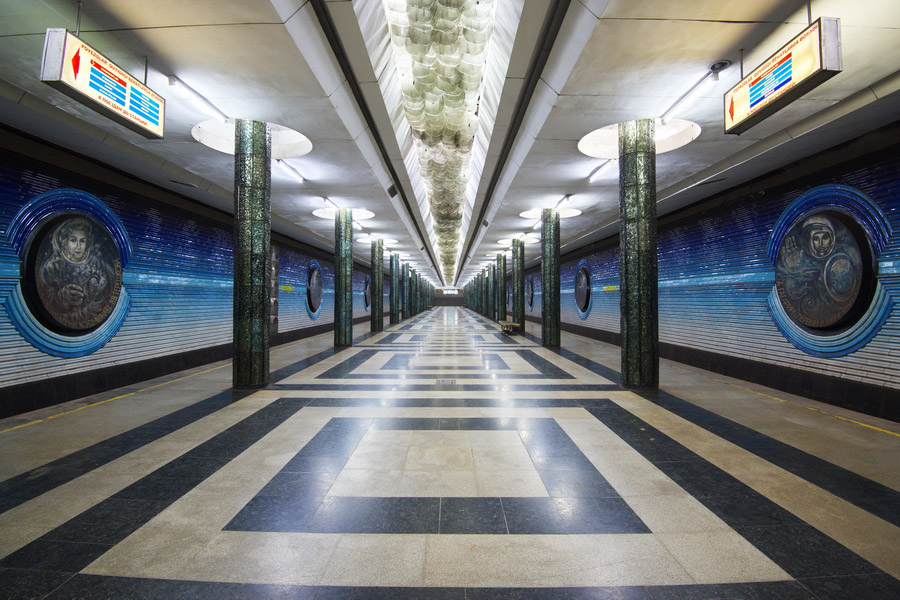
The Tashkent Metro is the only metro system in Uzbekistan and was the first to open in Central Asia, debuting in 1977. It has 50 stations on four lines: Chilanzar (1977), Uzbekistan (1984), Yunusabad (2001) and the Overground Line (2020-2023).
One of the most unique places to visit in Uzbekistan, the Tashkent Metro resembles an underground museum. Each station has been designed with a unique concept by the country's best architects and artists, using luxurious materials such as white marble, granite, crystal and coloured glass. The artistic techniques used, such as Florentine mosaics, bas-reliefs, high reliefs and glazed ceramics, make the metro a masterpiece of architectural and historical significance.
A particularly noteworthy station is Alisher Navoi on the Uzbek line, built in 1984 as part of a project by Y. Mansurov. Its domed, monumental design, decorated with panels and traditional ornamentation, was an innovative and bold architectural choice for its time, making it a highlight of the metro experience.
Chimgan Mountains
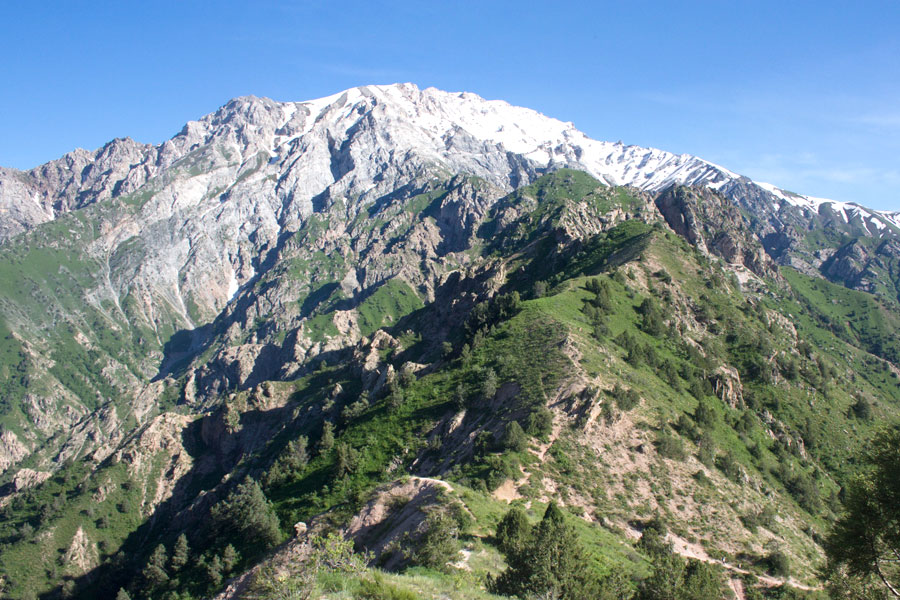
One of the main natural attractions in Uzbekistan is the Chimgan mountain massif, part of the Chatkal range of the Tien Shan, located about 80 kilometres from Tashkent. Part of the Ugam-Chatkal National Park, Chimgan is one of the most popular destinations for both summer and winter holidays, attracting tens of thousands of tourists each year.
The mountain slopes are dotted with sanatoriums and cottages offering stunning views. Chimgan is a haven for outdoor enthusiasts, with opportunities for hiking in the warmer months and winter sports, particularly skiing, in the colder seasons. Chimgan's ski resorts are well-equipped with modern infrastructure, including hotels, cable cars and quality slopes up to six kilometres long and two kilometres high. Winter sports enthusiasts will find excellent facilities at Beldersay and the newly modernised Amirsoy resorts, making Chimgan a must-see among natural wonders of Uzbekistan.
Khudoyar Khan Palace
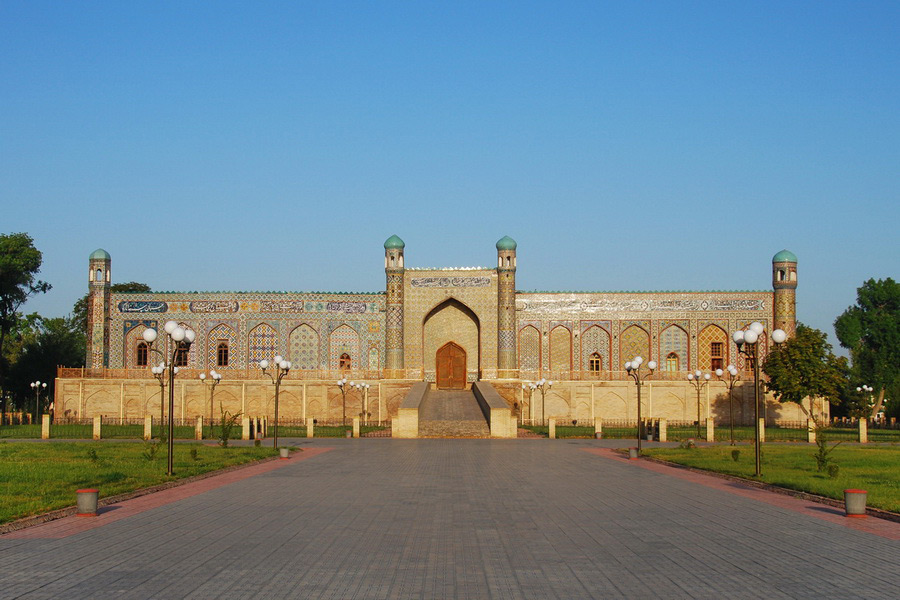
The Khudoyar Khan Palace in Kokand is a major historical attraction in Uzbekistan dating back to the late 19th century. The palace served as the residence of one of the last rulers of the Kokand Khanate, Khudoyar Khan, and was built to symbolise the strength and power of the Ming dynasty to which he belonged.
Covering an area of 4 hectares, the palace is most recognisable for its grand scale and richly decorated portal. The portal features intricate ornamentation and a large Arabic inscription that highlights the greatness of Khudoyar Khan and records the year the palace was built - 1287 Hijra (1871 in the Gregorian calendar).
Aral Sea

Formed over 17,000 years ago, the Aral Sea in western Uzbekistan was once one of the largest lakes in the world. But in the last 35-40 years it has lost 90% of its volume, causing one of Central Asia's greatest environmental disasters.
The sea has been replaced by the world's youngest desert, the Aralkum Desert. One of the most unique things to see in Uzbekistan is the graveyard of ships, located in the small town of Muynak, about 200 kilometres northwest of Nukus. Once a thriving port town, Muynak is now a hauntingly mystical place where abandoned ships lie stranded in the sand, a stark reminder of the disappearance of the Aral Sea. This global issue was highlighted in the music video for Louder Than Words from Pink Floyd's album The Endless River (2014), which captures the desert, the ships and a lingering sense of hope for the sea's revival.
Nearby is another of Uzbekistan's natural attractions, the Ustyurt Plateau, a fascinating geological site over 20 million years old. Known for its alien desert landscapes and dramatic cliffs that drop up to 100 metres, it is a must for adventurers and nature lovers alike. It is also one of the most unique things to see in Uzbekistan, offering an unforgettable experience for those seeking the country's natural wonders.
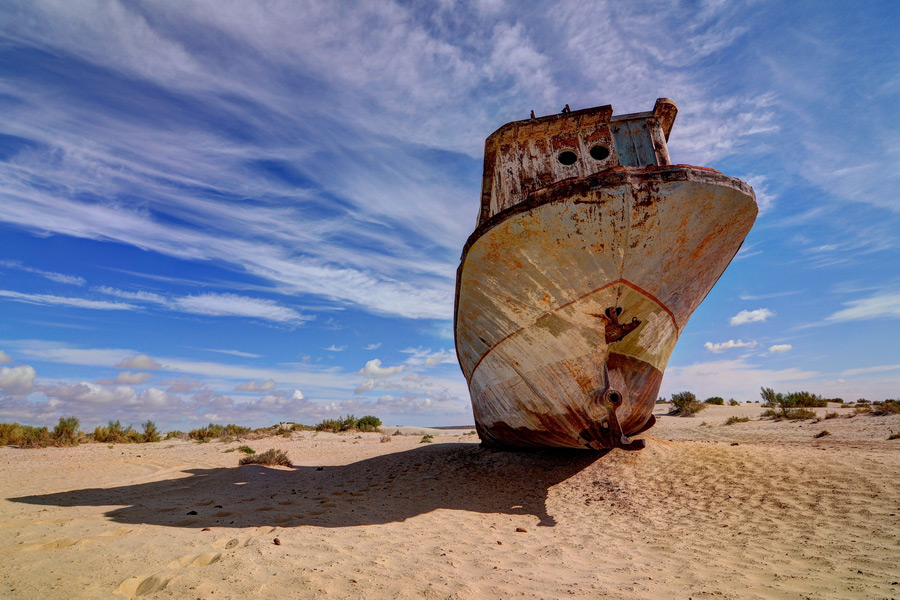
More Things to See in Uzbekistan
In addition to the main attractions mentioned above, Uzbekistan boasts many other culturally and historically significant sites that continue to captivate tourists.
Among them is Hazrat Daud Cave near Samarkand, a sacred site revered in Islam, Christianity, and Judaism. According to legend, St. David, fleeing persecution, used divine power to part the mountains with his hands, creating a refuge in the form of a cave. To this day, the massive imprints of his palms can be seen inside. This sacred attraction of Uzbekistan draws thousands of visitors each year, who climb 1,300 steps to reach the site, often making a wish believed to come true according to local beliefs.
Among the lesser known attractions in Uzbekistan are the ancient Buddhist temples of Kara-Tepa and Fayaz-Tepa, dating from the 1st-2nd centuries AD. Located in Termez, these sites highlight the coexistence of different cultures in ancient times.
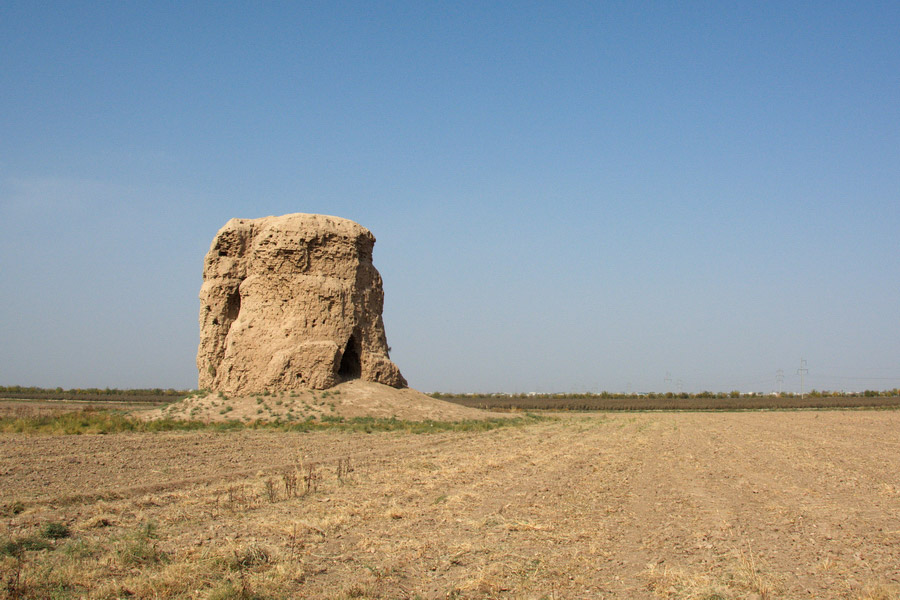
One of the most significant Buddhist structures near Termez is the Zurmala Stupa, a massive ancient monument. Originally a richly decorated 16-metre-high red tower, it has eroded over nearly 2,000 years into a 10-metre-high mound that bears little resemblance to its former glory as a Buddhist shrine.
The fortresses of Khorezm, Toprak-Kala and Ayaz-Kala are other notable places to visit in Uzbekistan. Toprak-Kala, dating from the 3rd century AD, and Ayaz-Kala, built in the 2nd century AD during the Kushan Empire, predate many of the iconic structures of ancient Rome, such as the Triumphal Arch of Constantine or the Basilica of Maxentius. These ancient ruins offer a fascinating insight into the history and architectural heritage of Uzbekistan.
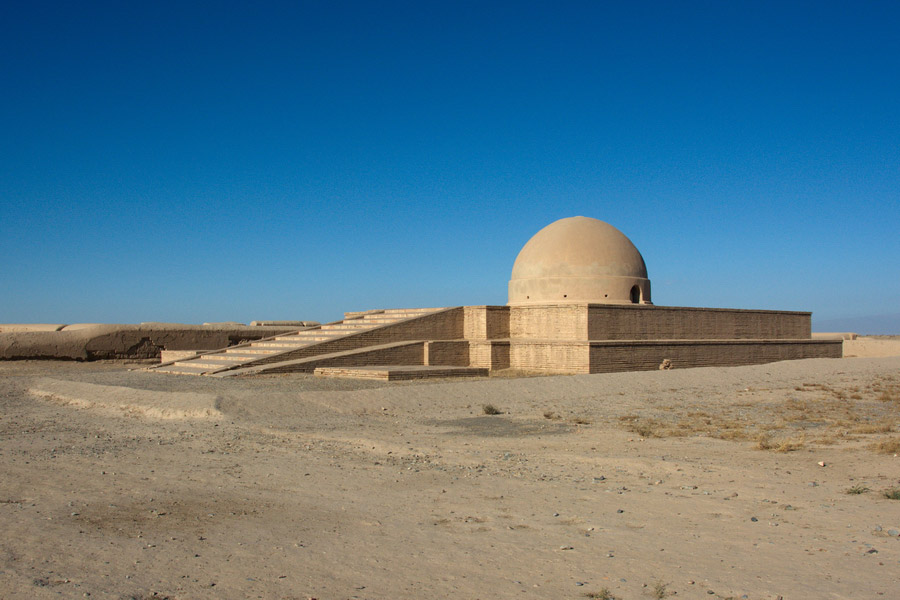
Modern parks in Tashkent, such as Magic City and Tashkent City, have become popular places to visit in Uzbekistan, offering a vibrant mix of leisure and entertainment for both tourists and locals. Opened between 2019 and 2021, these bright, modern attractions in Uzbekistan showcase the city’s contemporary development.
Magic City, the largest theme park in Central Asia, is known for its fairy-tale-inspired architecture and a wide range of activities. Visitors can enjoy numerous shops, cafes, cinemas, amusement rides, and even the country’s first Aquarium.
Tashkent City, on the other hand, is home to the country’s largest shopping and entertainment center, Tashkent City Mall, and the towering Nestone skyscraper, which stands approximately 267 meters tall. These destinations reflect the modern side of Uzbekistan and are must-visit spots for anyone exploring the capital.


